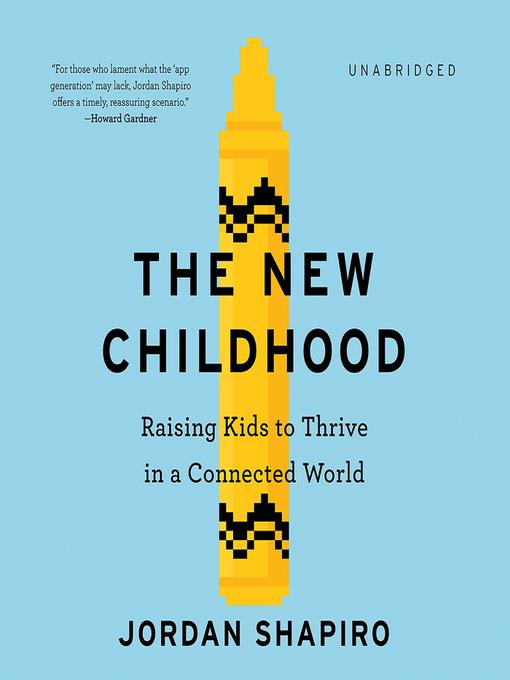
The New Childhood
Raising Kids to Thrive in a Connected World
کتاب های مرتبط
- اطلاعات
- نقد و بررسی
- دیدگاه کاربران
نقد و بررسی

November 1, 2018
Why screen time might not be so detrimental to your child's health. With the rise of the internet and smartphones, humans entered an era of extreme connectivity via invisible threads around the globe. Children born during this time know no other life and readily accept and adapt to the latest changes in software and technology. Shapiro (Intellectual Heritage/Temple Univ.; Freeplay: A Video Game Guide to Maximum Euphoric Bliss, 2013, etc.) believes the connections children make over the internet are similar to those previously made on the playground or in the sandbox. Children are learning similar social and relationship skills in digital space, just as they once did face to face. The author claims the amount of time he spends playing video games with his sons is akin to the days when dads played ball with their children; in both cases, they are bonding on the child's level. Playing video games with other children around the world enhances a child's sense of self and their place in it while building social interactions in the safe environment of the child's own home. Shapiro argues that parents and educators should let go of their own fears about technology and embrace and endorse it, letting children develop their skills via these tools. He believes that in this new paradigm, adults must let go of their memories of their own childhoods and let their children create memories using the technology at hand. The author's arguments are persuasive and bolstered by research. Yet his theories may be difficult to swallow for those still inclined to believe that active outdoor play with real children in real time and space is a more productive way to learn acceptable social behaviors and develop relationships than sitting alone in front of a computer screen. Credible theories backed by solid research that show technology is possibly less harmful than originally thought to children who use it on a regular basis.
COPYRIGHT(2018) Kirkus Reviews, ALL RIGHTS RESERVED.

The author's audiobook on raising kids in a digital world sets out to reassure us that the pervasiveness of digital gaming and 24/7 connectivity is actually preparing our children for participation in new paradigms of personal growth and global citizenship. With diction and pacing that make comprehension effortless, the Temple University philosophy professor explains that the consternation adults feel about their children's screen time is the same reaction past generations had about other disruptive innovations. He says monitoring screen time can minimize the addictive and isolating aspects of digital games while still allowing parents to prepare children for real-life social interactions. His practical insights and strategies will help parents influence their child's digital life rather than retreat from it. T.W. � AudioFile 2019, Portland, Maine

November 15, 2018
Worried that video games will ruin kids' minds? Stop. Shapiro, psychologist and father of 10- and 12-year-old boys, advocates for digital play. Video games are the new bedtime stories, the new fairy tales, the new mythology, perhaps even the new scripture, he says. Whew. In his view, people fear their own creations, from Frankenstein to the Terminator to new technologies. He encourages parents not to be like the troll beneath the footbridge, saying, When are you going to grow up and stop staring at screens all day? He sees the glass as half full, with gamers cultivating social skills during thumb play. And he urges parents to resist tut-tutting and, instead, ask questions about the games and talk about everything from their soundtracks to the developers who decide how avatars jump, run, and shoot. Skeptics may be less than bullish about his rosy view of the "New Childhood." Still, they will find much food for thought about how video games may unite people even if they live largely in the equivalent of a digital gated community.(Reprinted with permission of Booklist, copyright 2018, American Library Association.)

























دیدگاه کاربران